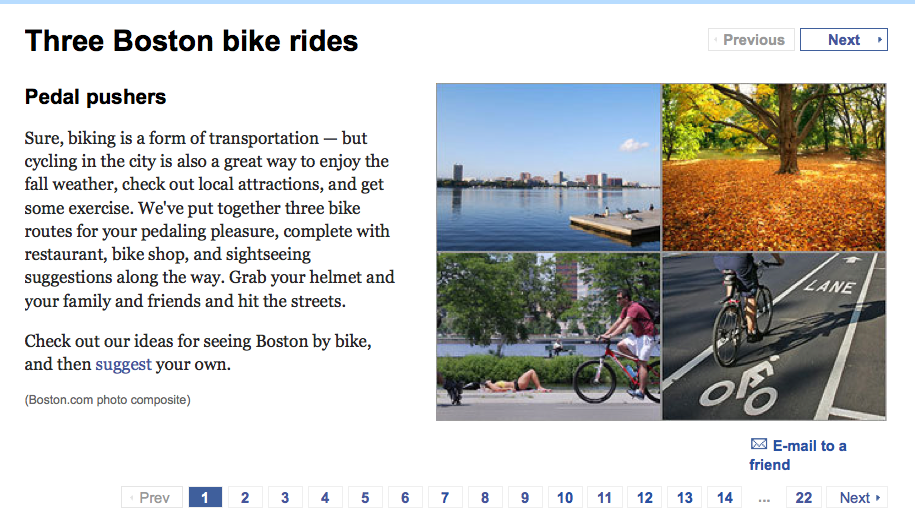I’ve been looking into the Boston Globe recently, trying to figure out how they reported on bicycles in the past, and since my Lexis Nexis subscription only goes to the late eighties, that’s where my grasp on history has ended.
I uncovered this one (article below), which starts by using a young man’s death as a hook to talk about couriers, and how bikers don’t wear helmets, but know where stuff is.
The topic of a David Reuter’s death is slowly phased out, and the author finishes the story a discussion of Bike Messenger companies, and how they came into existence.
I’ve come to think that, embedded in the discussion of helmets and law breaking cyclists is, at best, a somewhat crass lesson that obscures the real tragedy of a person dying. At worst it is a sort of implicit blame, where the guiding thought is: He died. He should have worn a helmet. Although I highly endorse the use of helmets, and most cycling laws, I don’t like how they are the focus of cyclist deaths.
I think that this article embodies that. This doesn’t seem deliberate, but rather indicative of how some writers at the Boston Globe views these situations.
In any case, other than the morbid slant to the article, it is fun to read. Does anyone know the people interviewed in the article?
For fair use reference:
November 27, 1988, Sunday, City Edition
THE BIKE COURIER BUSINESS;
Fatality delivers message: It’s not all freewheeling
BYLINE: By Susan Bickelhaupt, Globe Staff
SECTION: METRO/REGION; Pg. 1
LENGTH: 1217 words
David Reuter, a 22-year-old student at Northeastern, started working as a bike messenger at 8:30 a.m. on Aug. 19. At 8:35 his bicycle collided with a small pickup truck on Beacon Hill. After lying in a coma in Massachusetts General Hospital for six weeks, he died.
Reuter, like many area college students, was attracted to the bike messenger business for the independence it offers, the chance to be outside, the flexible hours.
But his death was a sobering reminder that riding a bike in the city – whether for commuting, recreation or doing business – is more often than not a challenge. It also sent chills through the Boston bike messenger industry, most of which were felt by Reuter’s employer of five minutes.
“His death was really the first serious accident for the company,” said Neal Stone, owner of Boston Bicycle Couriers. Stone has always encouraged his messengers to wear helmets, but since Reuter’s death he has taken even stronger action. He now offers a loan program where the messenger can borrow money for a helmet over the course of four weeks’ pay. Reuter was not wearing a helmet at the time of the accident.
“It’s not the law, so you can’t force messengers to wear helmets, but we don’t want them to have any excuse not to wear them,” he said. “It’s just too bad it takes something like this to spur you into action.”
“David had phoned us the night before and told us he was going to start working,” said his father, Jerry Reuter, from his home in Plattsburgh, N.Y. “We were not really thrilled because we thought it would interfere with his studying. David was a political science major on his way to law school; he would have graduated in December. But he was an independent character and said this would fit into his program.”
The approximately dozen messenger services in Boston today attract new cyclists such as David each year and keep members of the business community in quick touch with each other.
Bike messengers dart through the city and into Cambridge, finding squares that aren’t squares, centers that aren’t centers and places that just don’t exist on any map.
Easily identifiable by the large canvas bags slung over their backs and the look of purpose in their eyes, messengers are at work as long as Boston businesses are open.
Greg Luce, of Brookline, remembers vividly his first day on the job. “My last pickup of the day was eight packages from MGH that were going everywhere,” he says now, two years later. “When I got home, I threw up. It was so stressful.”
“Now I can see how really unnecessary that is,” said Luce, 22, now on leave from Boston University for a semester and working full time. “I know the city so I can see all the streets in my mind.” Which is a good thing, because as he and other messengers will readily point out, there are some addresses in Boston that elude even the most careful mapmaker.
One Boston Place is not on any map; neither is One Financial Center. But if you’re a bike messenger in Boston, you’d better know how to find them, “because it means the more money you make,” according to messenger Doug Sargeant.
Sargeant assesses the driving, walking and bike riding in Boston as “a totally outlaw situation.”
“I mean, I’ve seen pedestrians run into each other; there is no ordered process,” he said.
Boston police said that in 1986, there were two fatalities of bicyclists that involved motor vehicles; in 1987, there was one, and so far this year Reuter’s is the only death. The statistics kept, however, do not differentiate between messengers and commuters or recreational bikers.
While David Reuter lay in a coma, his father took walks around Boston and saw a lot of people on bicycles. “I would stop and ask them, ‘If you had a helmet, would you wear one?’ Everyone said yes, whether they were a youngster or middle-aged man. And I can’t tell you how many I asked – my wife says I’ve become the helmet missionary.”
Since Reuter’s death, his father and mother have started a fund that will go toward the distribution of free bicycle helmets.
Eric Trurin, who with his wife, Diana, runs one of the smaller bike courier companies, mostly attracts the Cambridge-to-Boston business.
Trurin, 29, worked as a courier himself when he was a post-college songwriter. “It fit my lifestyle,” he said.
Now the business he started three years ago serves 200 clients and grosses about $ 200,000 a year. “But it all goes back into the business,” Trurin said, rattling off expenses that include insurance, workers’ compensation and bookkeeping.
Stone, whose company is about 10 times as big as Trurin’s, said he grosses about $ 1 million a year. “But of course half of that goes to the riders,” he noted.
Depending on the company, messengers take home 50 to 60 percent of the delivery charge. A survey of several companies shows that a bike delivery from Harvard Square to Kenmore Square costs about $ 9, and from Kenmore Square to downtown about $ 5.
The key to making more money, though, is not just being a fast rider, but being able to change a flat tire quickly and knowing where all the streets and alleys are. “If you know what you’re doing, you can make $ 400 to $ 500 a week,” Stone said.
Trurin said he resents the image many people have of bike messengers as renegades, and in part blames the movie “Quicksilver,” which shows messengers bombing up and down the hills of San Francisco. “It turned this job into Flashdance,” he said.
Sargeant, who has been riding for Cambridge Couriers for three years, agrees. “I went to MIT for two years, I’m not in a rock band and I have a computer,” he said.
Stuart Tabakin, who owns the oldest messenger service in Boston, Marathon Messengers, can recall the rocky start of his business 12 years ago.
Tabakin started with two others out of an apartment on Beacon Hill in 1977. “I told them, when we get 10 orders a day, I’ll take you out to Steve’s” for ice cream, he said. It was August until they were able to collect.
But slowly, through word of mouth, the business grew, and he can now dispatch about 70 couriers a day to make about 1,000 deliveries.
Now there are several computers in Tabakin’s Back Bay office, telephones with a dozen lines to take incoming and outgoing calls, and shelves filled with computer printouts of bookkeeping records.
Now Tabakin’s biggest competition is not so much other courier services as it is technology; namely, the facsimile machine.
“Fax machines are our biggest competition right now,” Tabakin said. “They took the gravy away; there are no little jobs across the street anymore.”
But, he added, “you still can’t fax airplane tickets, legal documents or photographs that need to be reproduced.”
Stone, of Boston Bicycle Couriers, also pointed out that “when the refrigerator came into being, all the icemen thought they would go out of business, but there are still trucks that deliver ice.”
In addition, he said, “We’re a service industry.” Messengers, after all, don’t just deliver things, but wait in line for people, too. “No one wants to stand in line at the Registry, so we do it for them.”
“What we’re doing is a throwback to the 1890s, when everyone used bike messengers. We’re just completing the circle,” Stone said. “I can only thank God the post office is so inefficient,” said Stone.
LANGUAGE: ENGLISH
GRAPHIC: PHOTO, 1. Globe staff photo / David L. Ryan / A bicycle messenger rides through traffic on Federal Street downtown. 2. Globe staff photo / Barry Chin / Messenger Greg Luce of Brookline: “I know the city . . . .”
Copyright 1988 Globe Newspaper Company
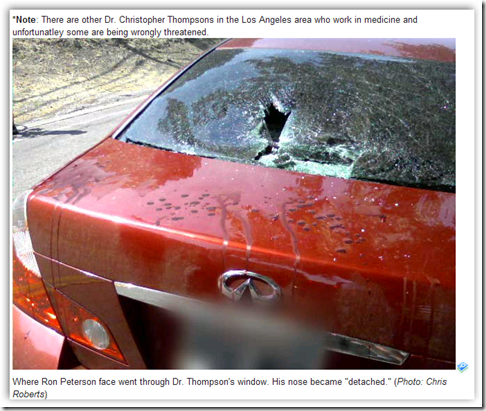
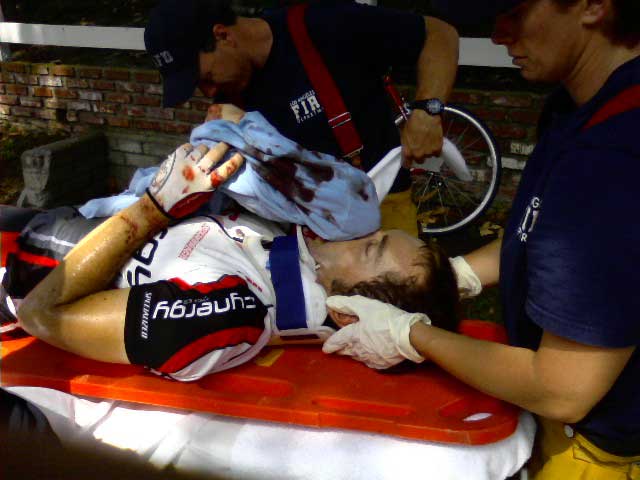
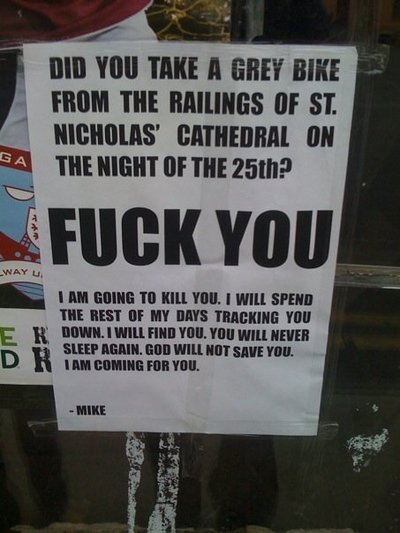
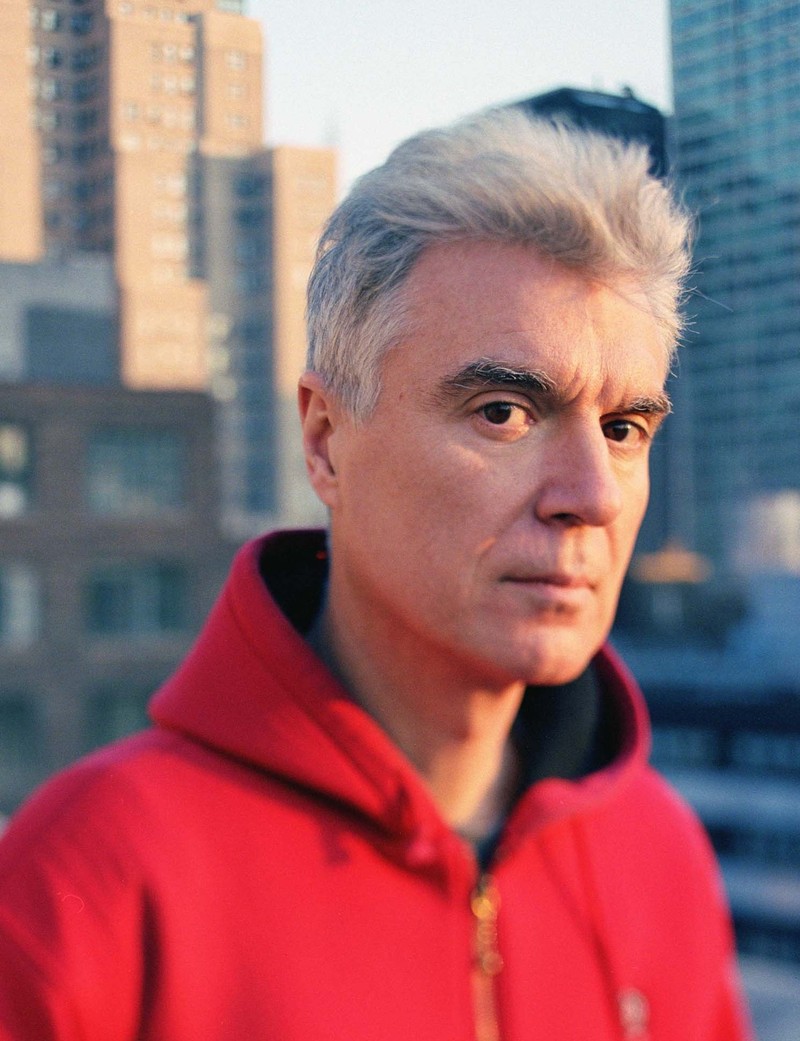
 2 Comments
2 Comments